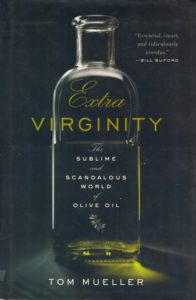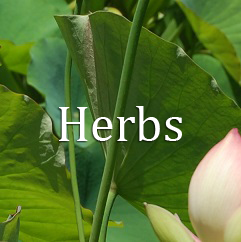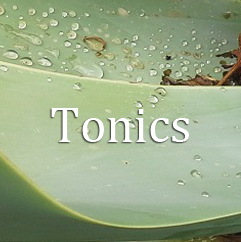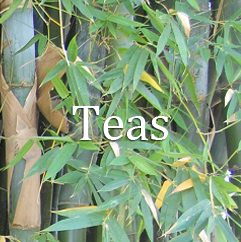Extra Virginity: the Sublime and Scandalous World of Olive Oil by Tom Mueller. Published by W.W. Norton and Company, New York and London, 2012.

Olive oil in your kitchen is a flavoring agent in so many recipes and olive oil in the bath cabinet, is an addition to the cosmetic array of oils in soaps, creams, first aid. It’s the legendary salve of European history, whether on victual or in ritual, adulated by cooks worldwide; this oil is the only oil/juice we have* of a fruit tree, so called by author Tom Mueller. Olive trees, first planted, need about 5 to 6 years’ growth before producing the olive, the wondrous fruit that when squeezed, gives forth an oil that has both taste and healthful substances not found in another oil.
Olive trees all over the land are what you see at first glance on the title page to “Extra Virginity: The Sublime and Scandalous World of Olive Oil” by Tom Mueller. Reminiscent of picture books of the 1980s when an opening picture set the theme, countless trees are set in rows, running over hillocks in a patchwork pattern to the four edges of two pages, seemingly just a pinpoint in an endless rural, agricultural scene. Reading the first of the book’s eight chapters, we find that olive tree farming and harvesting are now keeping pace with technological advances in agriculture as much as possible. The row upon row planting is a modern convention, aimed at efficiency in olive tree farming and using mechanical methods of cutting back-breaking work to a minimum, such as mechanically harvesting the fruit. Olive oil made from olives using old methods such as hand-picking would wipe out the olive oil business as we know it.
This is not, however, a picture book but a work of dedicated research into the social history of olive oil and oil production in Italy, with supporting stories from Spain, Greece, Australia and the United States. The author’s obsession with olfaction, flavors, colors and aromas is a learned skill. But his interviews with olive oil farmers and oil producers are personal portraits of mavericks whose quality products stand up to the giants in big oil production, the makers of “low-quality oils”.
The life-supporting substances in true extra virgin olive oil are rather well-known, Mueller says. There are laboratories in Italy, Australia and the United States whose mission it is to define the qualities of true extra virgin olive oil. Concerns about quality have sprung from a recent history of lawsuits, both for health and for monopolies in business. In fact olive oil that is not pure but adulterated can have adverse effects on health and actually cause diseases. How is this possible from such a well-known and much-touted table condiment? The whole premise of preserving “extra virginity” stems from the realization that there is widespread deception in the marketplace.
To report on the truth of the matter, Mueller spent several years researching the business of extra virgin olive oil. That included interviewing olive oil producers who are passionate about preserving the fruit of a virtual tree of life versus those who are in the business just to make money. Big oil producers are likely to have formulated a profit over quality scheme in which their olive oils, usually the last of the season’s fruit, now old, possibly moldy and considerably less than desirable, are suffused with oils from other plants (soy bean, sunflower, and various nuts). These being cheaper oils, their bulkage generously disguises the lack of actual extra virgin olive oil, and the whole slurry is deodorized and refined to almost an odorless and certainly colorless mixture before bottling and finally reaching the supermarkets. All of this would fall into the typical economics of commercially produced and mass-marketed food, where labels are misleading. Labels which read “extra virgin olive oil”, and are in fact not, is a blatant lie, Mueller says, perpetrated legally by many olive oil blends. So what? I guess at first glance the consumer is being tricked; and second, the farmers and producers of the real extra virgin olive oil are being squeezed out of business. In other words, no more real extra virgin. No more high quality, pure oil. No more health benefits for heart, stomach, skin. No more connection to the earth.
“Extra virgin” represents the healthful substances of pure extra virgin olive oil. Contrasted with animal fats like butter that can be destructive to human health, the possibility that pure olive oil might cease to exist is a red alert on many levels. Customers, whose demand is for the pure olive oil, the extra virgin olive oil, also known as EVOO, might be able to turn this trend around. Extra virgin olive oil is the hallmark of a Mediterranean diet, a way of eating that promotes fresh fruits and vegetables along with pure olive oil that anoints every edible on your menu. Extra virgin connotes an oil made by crushing the fruit to oil and maintaining its raw state by filtering the solids without heat. The resulting oil is purely from olives with nothing added.
Is jade green the color of the best oil? What about golden shades? Are bitter and peppery prized qualities of taste? Olives themselves come in a variety of greens and purple colors, flavors and aromas.
For a glimpse of Mueller’s book I recommend reading from his web site, Truth in Olive Oil, several of the articles he’s posted there.
*fruit juice or oil from a fruit tree (olive tree) is the only crushed and raw expressed oil from a fruit tree that is widely available. This was according to the author, who may not have thought of avocado oil (for cooking). Also the many fruit oils that are produced as essential oils, such as citrus oils, etc.
Follow


